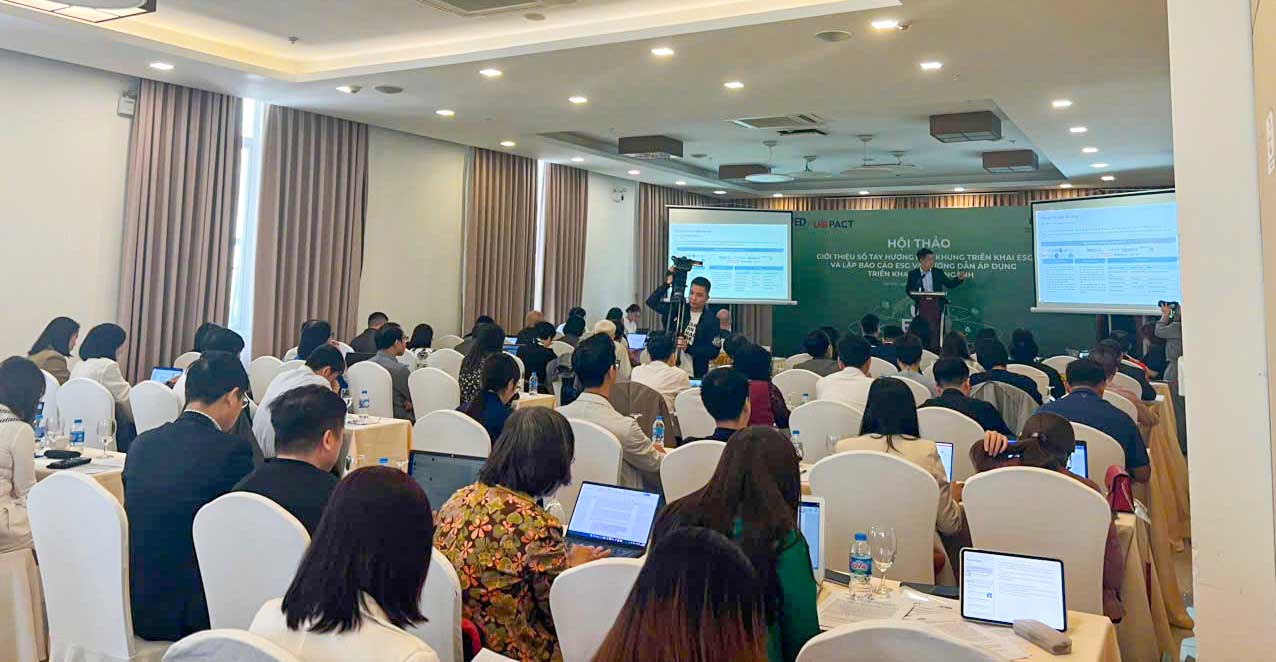New steps in ESG practice in Vietnam
Integrating environmental, social and governance (ESG) standards into business operations is becoming an important requirement for Vietnamese enterprises. To support businesses in this journey, the Handbook for ESG Implementation framework, ESG Reporting and Implementation Guidelines for the three industries have been officially launched in Hanoi. This is a tool to help businesses easily access sustainability standards, while improving their capacity to disclose information and attract green financial resources.
The ESG Handbook was developed in collaboration with the Department of Private Enterprise and Collective Economic Development (APED) - Ministry of Finance, the British Embassy, the British Consulate General, and consulting units such as the Vietnam Asian Fund and Ernst & Young Vietnam Co., Ltd. (EY Vietnam). This tool helps businesses, especially small and medium enterprises (SMEs), better understand how to deploy ESG in governance and operation, thereby improving competitiveness and expanding the market.
ESG is no longer a trend but has become an important standard, shaping the development strategy of many businesses. The ESG Handbook not only guides businesses on how to implement ESG factors but also provides a set of tools to build sustainable development reports, helping businesses transparent information and meet the requirements of international investors.
Not only stopping at a guiding document, the ESG Handbook also focuses on three important areas: finance, real estate - construction and industrial production. These are sectors that have a great impact on the economy, environment and society, and are also the sectors that are under the strongest pressure to change in the context of globalization and climate change.

Reviews from experts
According to Mr. Ferguson McBean - First Secretary of Climate and Nature, Embassy of the UK, ESG practice not only helps Vietnamese enterprises meet international requirements but also brings long-term benefits: ESG is reshaping the way businesses approach investment and operations. Applying ESG not only helps businesses increase their reputation but also opens up opportunities to access green capital sources, especially from the UK and EU markets.
Mr. Nguyen Duc Trung - Deputy Director of the Department of Private Enterprise Development and Collective Economy, emphasized that ESG is the "mental guideline" for the sustainable development of enterprises: " applying ESG standards helps Vietnamese enterprises improve competitiveness, attract investment and expand export markets. This is not only an option, but has become an urgent requirement in the current business environment.
From the perspective of a consultant, Mr. Nguyen Viet Long - Deputy General Director, Consultant, Ernst & Young Vietnam Co., Ltd., believes that the ESG Handbook will help businesses, especially employees, access the ESG conversion process more easily: "We expect the ESG Handbook to become a useful tool, helping Vietnamese businesses to initially implement ESG in a practical way, saving costs and approaching more effectively with sustainable business opportunities."
The launch of the ESG Handbook does not stop at the workshop in Hanoi. On March 28, 2025, a similar event will be held in Ho Chi Minh City, focusing on the manufacturing industry, especially textiles, footwear and steel production. The entire content of the ESG Handbook will be published on the business portal, making it easy for businesses across the country to access and apply.
With the support of management agencies, international organizations and consultants, the ESG Handbook is expected to become a guideline to help Vietnamese enterprises not only meet ESG standards but also develop more sustainably, transparently and effectively in the global business environment.











